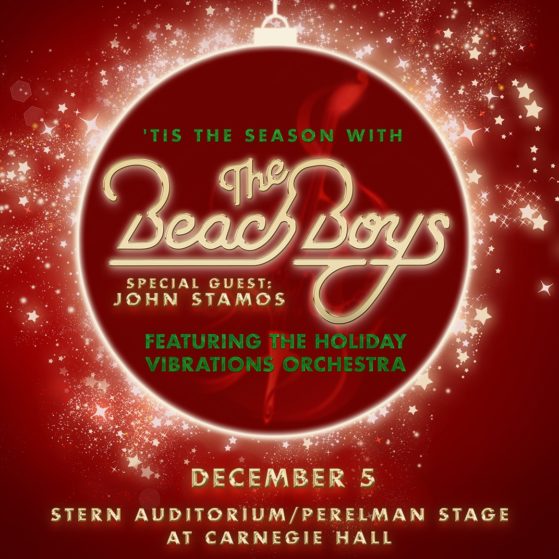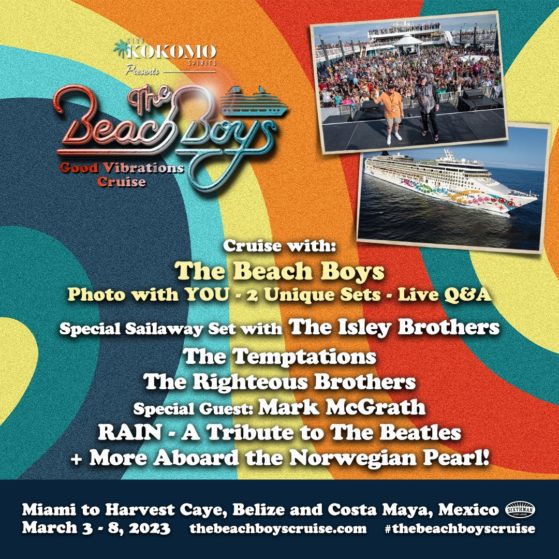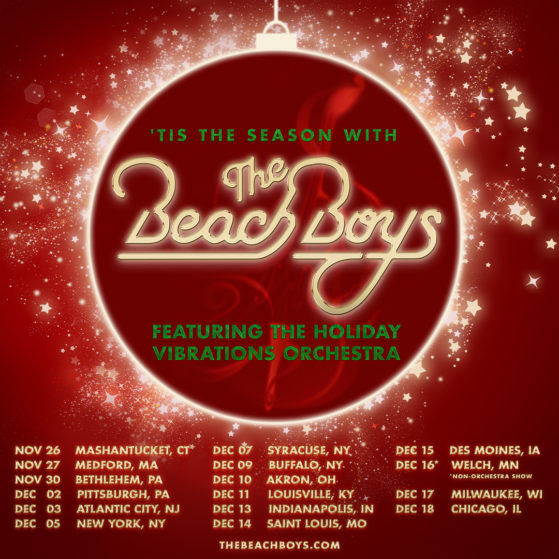Mike Love’s Endless Summer of Love
Half a century after he co-wrote “Good Vibrations,” new ASCAP member Mike Love still finds inspiration in the music and legacy of The Beach Boys
By Etan Rosenbloom, Director & Deputy Editor, Marketing + Communications
IN THE LATE 1840s, hundreds of thousands of hopeful pioneers began flocking to California, lured by the promise of gold and sunshine. A century later, The Beach Boys inspired their own California Dream. Their songs are more than just radio staples, passed down from one generation to the next. They also defined an entire narrative that still captures the world’s imagination today – the vision of California as a land of good luck and great weather, unlimited possibility and endless youth.
One of the primary architects of that musical mythos is Mike Love, the lyricist for many of The Beach Boys’ signature songs. He co-wrote nearly all of their Top 10 hits – including “Fun Fun Fun,” “California Girls,” “I Get Around,” “Help Me Rhonda,” “Kokomo” and “Good Vibrations” – and sang lead or co-lead on many more.
Now 75 years old, Love is as busy as ever, and shows no signs of slowing down. He still plays well over 100 shows a year with The Beach Boys. On September 14th, Love and The Beach Boys will play New York’s Central Park’s SummerStage – just a day after Love’s memoir Good Vibrations: My Life as a Beach Boy is officially released.
Shortly after Mike Love became an ASCAP member (the official date was during the first week of summer, naturally), we asked what motivates him to keep spreading the sunshine gospel that he helped write, more than 50 years ago.
********
What was the first song you wrote? Did it take some work before you were writing songs you were really proud of?
My first song I wrote when I was 10 years old, titled “The Old Soldier.” It was about a past life impression which was unusual at that age, or maybe natural, because you are more sensitive at that age before life experiences take over. The first Beach Boys song which started our careers was “Surfin’,” soon to be followed by “Surfin’ Safari,” which became our first successful recording. I was very proud.
Who were some of your songwriting heroes when The Beach Boys were first coming up?
Chuck Berry was an enormous influence on my writing style, primarily the up-tempo recordings that I wrote.
The early Beach Boys songs paint a carefree picture of life in Southern California: sun, surfing, cars and girls. Was that a pretty accurate depiction of what you and the other Beach Boys were into when you were growing up?
The advertising industry calls it “heightened reality.” We took those impressions from our Southern California upbringing, and I crafted the lyrics to describe our life experiences at the time.
When you used to write with Brian Wilson, did he usually set your lyrics as written, or was there a lot of back and forth leading up to the final version?
Our songwriting partnership was ideal. Brian would focus primarily on melodies, harmonies, chord progressions and backing/instrumental tracks, leaving me free to find the lyrics and concepts that resonated with the music. For all the hits we had, Brian would rely on me for the concepts and lyrics as I would rely upon him for the production.
2016 marks the 50th anniversary of “Good Vibrations.” Its lyrics are more impressionistic, less straightforward than many of your earlier songs. Did you have a sense of what the song would become when you were writing that lyric?
What I had was a sense of the mood of time of 1966. Flower power and the hippie movement were in full swing, particularly in California. Whereas many of our earlier songs focused on our outer objective experience peculiar to Southern California, “Good Vibrations” dealt with subjective, intangible feelings descriptive of an idealized vision of a girl who was all about Peace and Love…the epitome of flower power…“She goes with me to a Blossom World we find…”
Beach Boys are one of those quintessential vocal groups. How did the sound of your voices impact the lyrics that you wrote? Were you ever inspired to use words because of the way they sounded when you harmonized, or change a lyric that didn’t sit quite right when you all sang them together?
The blend of the harmonies was the thing that was complementary to the instrumental aspect of the music. At least in my experience, it didn’t have much to do with the lyrics. The lyrics or lead were more impacted by the production of the song like the tempo, the feeling that the music evoked. For example, the haunting melody of “The Warmth of the Sun” — the mood of the music influenced the lyrics. Sometimes I would sit alone listening to the track for hours on end in order to immerse myself in the mood and feeling of the music, which would then give rise to the lyrical message.
Your memoir Good Vibrations: My Life as a Beach Boy is coming out soon. With more than 50 years of anecdotes to choose from, how did you decide what would make it in?
I felt that my memoir should primarily focus on some of the things I felt essential to share with respect to The Beach Boys career, hence “My Life as a Beach Boy.” There are many people and experiences that were very impactful and important to me throughout the course of my life, but for this autobiography, I felt we should focus on events relative to The Beach Boys career from my perspective.
Do you still find time to write new music despite your non-stop touring schedule?
As a matter of fact, I’ve never stopped writing music. I have several dozen unreleased songs and poems.
What has touring the world taught you about what you and The Beach Boys have achieved?
International touring has never ceased to amaze me. To be in front of a crowd of 30,000 people in Japan and have them erupt in a chorus of classic hooks of our songs. And performing in Germany, France and Scandinavia, where language differences are transcended by our music, is mind blowing. Nothing in my life experience in foreign performances could match the impact of our concerts in Czechoslovakia…I talk about it in the book.
Post-Pet Sounds, you and the other Beach Boys began writing songs about spirituality, meditation, the environment…Is it still important to you to spread a message with your music? What message matters most to you now?
Yes, it is very important to me to bring attention to the challenges that face our environment. I wrote a song with Terry Melcher titled “Summer in Paradise” which we currently perform during each performance. Al Jardine and I wrote a song titled “All This Is That” which speaks to our shared spiritual ideas and beliefs…Christopher Cross has longed claimed this as his favorite Beach Boys song.
As a new ASCAP member, what inspires you about ASCAP’s mission?
I laud the efforts of ASCAP and its protection of songwriters’ and publishers’ art. I look forward to becoming very involved with ASCAP where I might be a useful voice to champion the initiatives of our songwriting community.
From Katy Perry to Best Coast, so many younger musicians have sampled your songs, or been majorly influenced by The Beach Boys. How does it feel to hear new generations re-interpreting and taking so much inspiration from your music?
I feel honored that younger artists hold The Beach Boys in such high regard, such as Foster the People who performed “Wouldn’t It Be Nice,” and Maroon 5 who performed “Surfer Girl” in 2012 with us at The Grammys.
And John Stamos has played a significant role exposing The Beach Boys to much younger generations through our appearances on Full House. As a kid, Stamos would ride his bike past my grandparents’ home and peer through the windows, gazing at our gold albums hanging on their walls. And to this day, he joins on us on stage, as his love of this music endures.
Do you relate differently to “Fun Fun Fun,” “California Girls,” “I Get Around” and all the rest of the classics you wrote after singing them for so many people over five decades?
I don’t think I relate to them differently, but I’m awed by the continued timeless popularity of these songs. These songs have become a part of the American Songbook.


